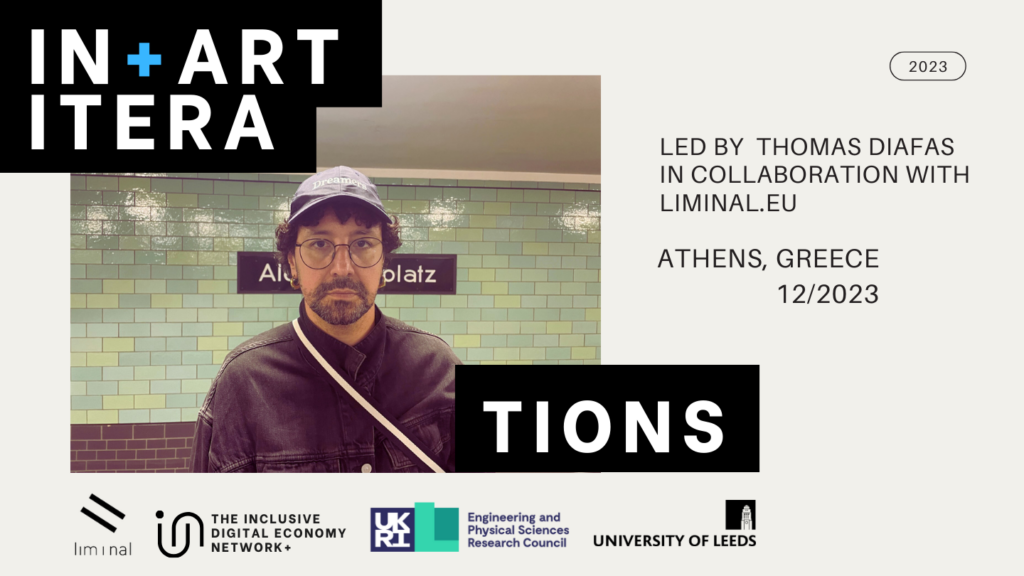IN+ ART iterations: Is digital equity a utopian idea?
Just imagine: no systemic barriers and anyone (regardless of their gender identity, race, [dis]ability, and/or social-economic status and other intersectional factors) would have the same chances to use and benefit from digital technologies. Those digital technologies would be fit for a variety of uses; would be organised with and through different values and principles; and would be experienced in a myriad of ways and in relation to our lived experience of being in the world.

IN+ ART iterations
As part of the University of Leeds ‘ research project (The inclusion digital economy network +) on digital exclusion, Thomas Diafas, in collaboration with liminal, held a two-day seminar on the topic.
Using participatory and inclusive filmmaking practice, the aim was to provide a platform for participants to share their personal experiences of digital exclusion and digital inclusion. Thomas’s workshop aimed to equip individuals with fundamental skills in filmmaking and directing, utilising user-friendly, non-professional cameras.
As part of the IN+ ART programme, Thomas employed collaborative methods inspired by the concept of play, fostering an environment that encourages alternative approaches to traditional hierarchical structures commonly found in film production teams.
This workshop is linked to a wider network of research projects on digital inclusion taking place in various parts of the world.

About Thomas Diafas
Thomas Diafas (Thessaloniki, 1987) is a Greek-Dominican transdisciplinary artist and educator. He has collaborated with important artists and institutions around the world: VestandPage, Nahmad Projects, Central Saint Martins, Cabaret Voltaire Zurich, Marina Abramovic Institute, Athens Biennale, National Museum of Contemporary Art in Athens, Contemporary Art Showcase Athens, wearebud etc. He is the creator of the Thessaloniki Queer Arts Festival.
His practice revolves around the concept of care in education and the labour market, aiming to combat anxiety and depression. He has devised a hybrid of performative arts called “Performing the Real”, targeting our contemplation of the differences between real life and art.
